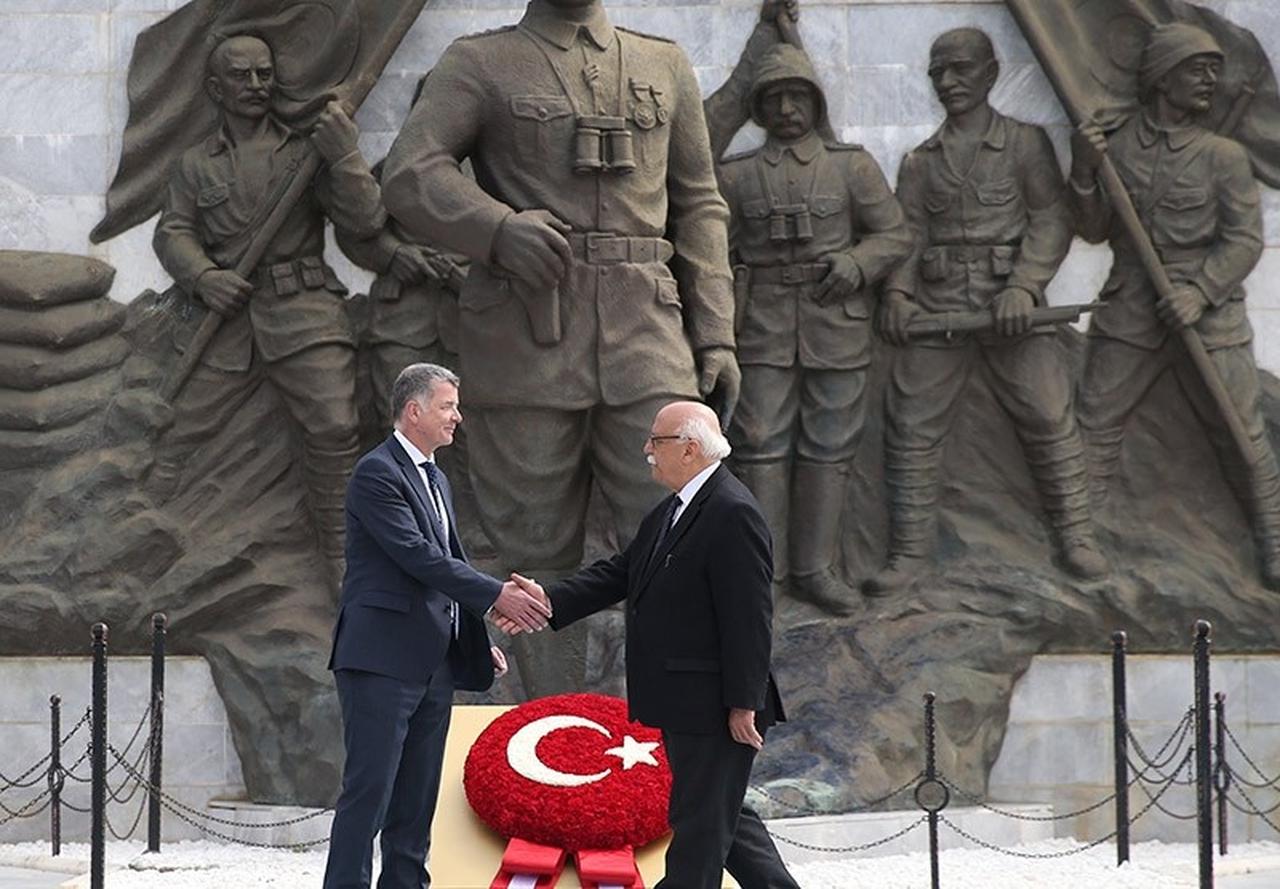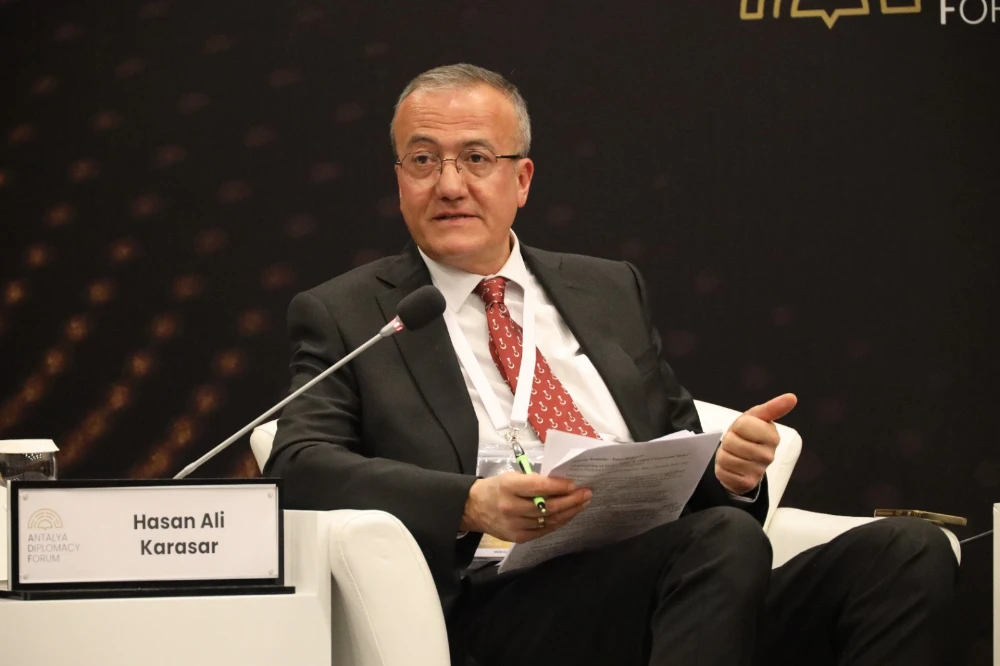
Türkiye has developed and maintains a comprehensive Turkic world agenda as a matter of state policy. With a combined population exceeding 160 million and a total gross domestic product (GDP) of approximately $1.5 trillion, each country in the Turkic world holds strategic significance. This explains why Europe's recent outreach to Central Asia was particularly noteworthy, though Türkiye's approach represents a long-term strategic vision rather than a reactive policy.
Just this past week, the Turkish Cypriot Consul General in Istanbul addressed the Turkic World Cultural Festival; a panel on "Heydar Aliyev and the Turkic World" was held in Ankara with ambassadorial participation; Baku hosted a symposium titled "Unity in Language, Thought, and Action: The Future of the Turkic World"; the Turkic World State Ballet Schools Festival took place in Ankara; and a Turkic World Academic Research Association was established at Ege University.
Türkiye's strategic culture constantly evolves across multiple dimensions—in military-government relations, government-public interactions, and military-civilian dynamics. A new ecosystem of think tanks and associated experts is increasingly contributing to the state's agenda. However, their work's actual impact and effectiveness remain something of an enigma, raising questions about how policy research translates into implementation.
To understand the challenges in Türkiye's policy-making processes and explore potential reforms, I recently spoke with Professor Hasan Ali Karasar, rector of Cappadocia University. Karasar, who has extensive experience in policy research and has written extensively on strategic culture in Türkiye, earlier than many, more than a decade before. He offers insights into the bureaucratic limitations and potential pathways for development. During our conversation, which has been edited for length and clarity, we discussed the disconnect between policy research and implementation, comparative perspectives and Türkiye's evolving strategic culture with its increased emphasis on the Turkic world.

Why does Türkiye need 'bureaucratic reform' in its policy-making process?
Türkiye possesses a vast and rich body of knowledge generated across multiple domains—from academic theses and government reports to think tank publications and media analysis. Yet, despite this intellectual wealth, much of it remains underutilized, archived rather than activated. The core issue lies in the absence of a functioning mechanism that systematically collects, processes, and translates this data into actionable policy alternatives for decision-makers. Our policy process lacks a filter—a structure that distills complex data into simplified options tailored for strategic decision-making. This is where bureaucratic reform becomes vital.
Historically, Türkiye's bureaucratic system was modeled after continental European traditions that emphasized administrative competence over specialization. For instance, key public servants—including diplomats, provincial administrators, and senior officials—still operate under a rotation system that discourages long-term expertise in specific regions or sectors. This limits the accumulation of deep, localized, or thematic knowledge within the state apparatus, creating a structural gap in expertise-led policy formation. In today's complex global environment, strategic decision-making requires continuity, specialization, and institutional memory—qualities our current system does not adequately foster. Hence, reform is not a luxury but a necessity.
What key elements should this reform encompass?
A meaningful bureaucratic reform in Türkiye should include three major pillars.
First, we need institutional mechanisms for strategic filtering. These would be intermediary institutions that can process raw data and transform it into viable policy alternatives. These could be specialized strategic units, advisory councils, or integrated think tank platforms that bridge the gap between knowledge producers like academia, media, and civil society, and the policy implementers.
Second, we need to prioritize specialization over rotation. The rotation principle, while designed to prevent bureaucratic capture, inadvertently inhibits the development of expertise. Reforms should allow for more long-term placements in key roles, enabling officials to build domain-specific or regional specialization, particularly in areas like education, health, climate, and regional geopolitics.
Third, we must incentivize policy foresight and futuristic thinking. We need to institutionalize foresight as a core capacity. This includes investing in futurists, regional experts, and interdisciplinary analysts who can model future scenarios and offer policy paths not just for today's problems but for tomorrow's transformations.
What have been the main shifts in Türkiye's strategic culture over the past decade, and what role does the military play within this transformation?
In my earlier editorial work, particularly in "The Culture of Strategic Thinking and Strategic Research Institutions in Türkiye" (2009) and "Strategic Thinking and Institutions in Eurasia" (2012), we documented the historical depth of strategic culture in Turkish and broader Eurasian civilizations. Turks have long traditions of geopolitical thinking and military-statecraft fusion. However, in the 20th century, particularly post-1980s, Türkiye began to develop modern think tanks modeled on Western institutions — although their growth was uneven and heavily concentrated in areas such as security and foreign policy.
Over the past decade, we've seen a diversification of Türkiye's strategic culture. Think tanks and strategic research centers no longer focus solely on national security or foreign affairs; they now address topics like health, education, tourism, energy, and social dynamics. However, strategic thinking and policymaking are still primarily associated with security institutions, and the military retains an outsized role in shaping strategic narratives — not necessarily through direct involvement, but by setting the frame within which strategic debates are structured.
The next step in Türkiye's strategic evolution must be the democratization and specialization of strategic thinking, ensuring that foresight, policy analysis, and strategic planning are not siloed in the defense and foreign policy bureaucracy but embraced across all policy domains.

From the perspective of structural strategic culture, how do you interpret Türkiye's increasing emphasis on the "Turkic World" in recent foreign policy discourse?
Türkiye's pivot toward the Turkic World is not merely rhetorical; it signifies a recalibration of Türkiye's regional identity and strategic priorities. From a structural strategic culture standpoint, this shift reflects both historical resonance and future-oriented pragmatism.
The shared linguistic, cultural, and historical ties with Central Asian republics offer a natural platform for Türkiye to assert soft power and forge multidimensional partnerships. What we are witnessing is the reactivation of a long-dormant geopolitical space—one where Türkiye is not just a Western ally or a Middle Eastern player, but a Eurasian partner and connector.
This evolution also reflects a deeper normative shift. There is a growing recognition within Turkish strategic circles that national interest cannot be divorced from regional identity. The emphasis on the Turkic World aligns with efforts to develop a more autonomous and multi-vector foreign policy, one that blends hard power with historical narrative, cultural diplomacy, and strategic economic cooperation.
Nonetheless, this transformation requires intellectual infrastructure. Without robust regional expertise, multilingual analysts, and institutional memory, our engagement risks being symbolic rather than strategic. That is why nurturing strategic culture and investing in policy research across domains is more crucial now than ever.
This interview was conducted for Türkiye Today in May 2025.